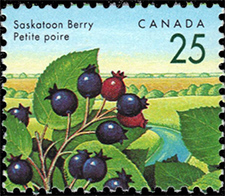One of the legacies my father has left me is a knowledge of trees. He was neither an arborist nor a lumberjack nor a craftsman who worked extensively with wood. Rather, he was a farmer alert to the beauty around him in the natural world. When I was a young child, he started to teach me the unique traits of different trees as we walked along roads and trails, wherever we might be. I marvel at the diversity within the "mixed forest" ecosystem in which I live, where evergreens and deciduous trees live side by side.
I no longer live in a rural area, and I notice that students raised in the city have very limited vocabularies when it comes to trees. They know "bark" and "tree" and "pine cone" and "Christmas tree." Why might it be valuable to know the trees by name?
When we see human beings just as "people" in general, we don't feel related to them much. Yet, those we've met and gotten to know by name are the ones we begin to care about and pay attention to. In the same way, knowing a birch, a spruce, a mulberry bush, and an oak focuses our attention on a particular tree as a thing of beauty. Each one brings something glorious into our lives--the story of Indigenous people and the ways they turned birches into canoes, the awareness that spruce wood is used in pianos and violins, the mulberries we can pick and sample in July, and the vast oak that provides shade from a blazing sun.
Some new trees I've gotten to know this summer are known either as the service berry or the Saskatoon berry or the June berry. They can be found as bushes or trees that grow to about three times the height of a human. They have a special place in Indigenous culture, as highlighted in this article by Robin Wall Kimmerer. I noticed the berries on one of my neighbourhood walks; these trees had been planted by the city on the boulevards of a subdivision built perhaps 30 years ago.
Other than the birds, nobody else seems to be interested in them. Now that I know the service berry, I pay attention to it and am grateful for it in a more specific way than just "Thank you, God, for making the trees." In my suburban setting, my walks and bike rides are enriched by knowing the trees I pass by, one at a time.





No comments:
Post a Comment